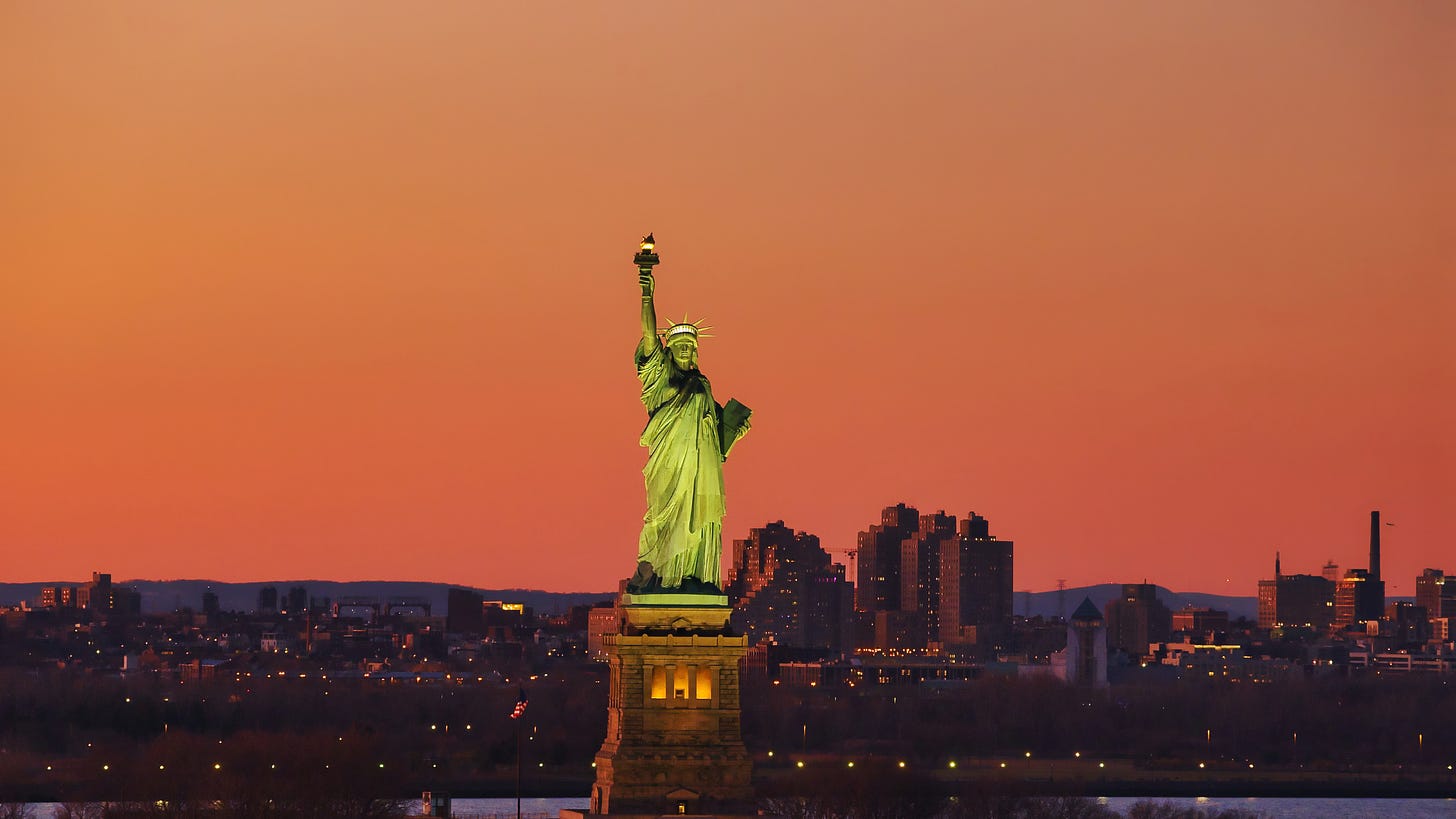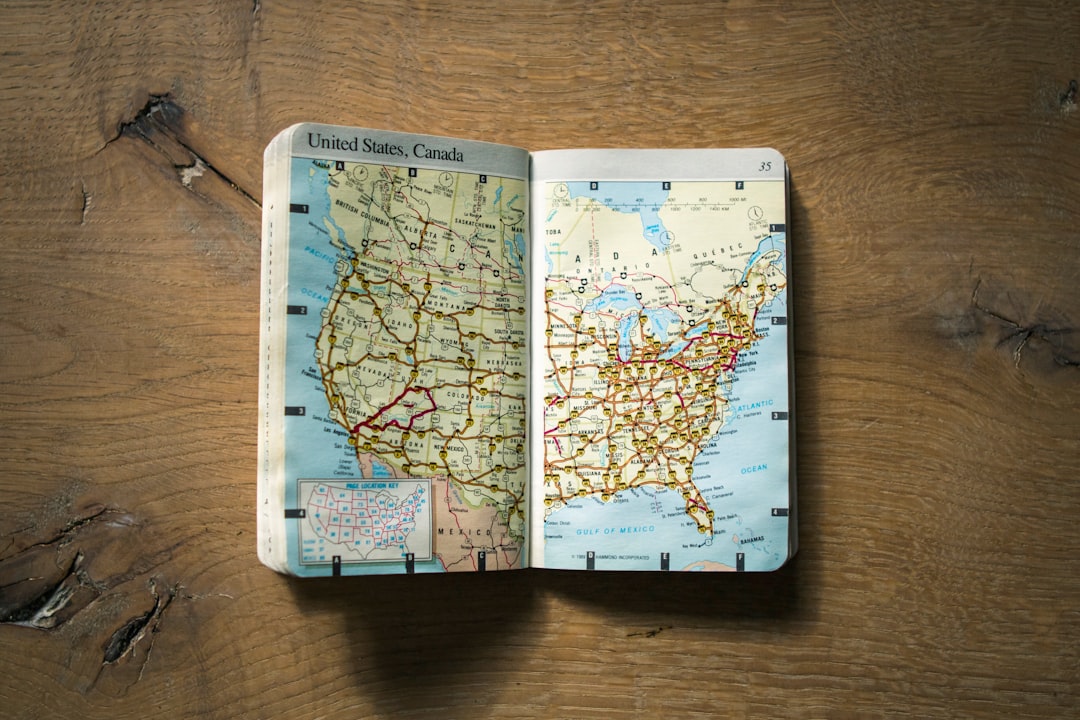What Will it Take to Make Our Nation Whole?
What if we leaned into our national grief and allowed it to heal our nation?
In Embracing Curiosity, I step away from writing about travel to comment on the bigger journey of life, exploring my faith and politics with curiosity and nuance.
I hadn’t read the books in years.
When my daughter was six, she asked me to read the Little House books to her. The book series had sat untouched on my shelves for years as I eagerly awaited my little girl someday asking me to read her the books that I had enjoyed as a child. I liked the stories of the prairie, stories that came to life when my family moved to Wyoming during my sixth-grade year. My mom has loved Laura Ingalls Wilder her entire life, and when I was a teenager we visited the author’s childhood home in South Dakota, my teenage-self caught between a desire to roll my eyes at visiting a historic author’s home on our vacation and excited to see the home of an author that I had also enjoyed as a child.
We got through The Little House in the Big Woods without incident, the delightful tale of a little girl living in the Wisconsin woods through a cold winter keeping us entertained for weeks. Then we started reading Little House on the Prairie. Within the first couple of chapters I became uncomfortable with Pa’s attitude toward Black men and Indigenous peoples. The language caught me off guard and I rarely had time to process it before it was already out of my mouth. I didn’t want my daughter’s first impression of Indigenous people to be through the eyes of a man settling the west, taking his family to new territory to build a better life for himself while ignoring the original inhabitants. My daughter quickly got bored with the second book and it went back onto my shelf and then into a donation box when we began packing for our move back to Indiana. I had unlearned enough American history at that point that I was ready to put that childhood darling behind me.
As a white woman growing up in a world that was made for me, I’ve had a lot of these unlearning moments over the years, and as a result, I’m increasingly less enthusiastic about the Fourth of July with each passing year. But I don’t want to pass up on the barbeque, the fireworks, and the illusion of bipartisan togetherness that a Fourth of July celebration attempts to create. I don’t want to give up on the idea of America.
That’s all it is, isn’t it? It’s an idea. It’s a good idea. It’s even a great idea. Sometimes I’d even venture to say that it’s a beautiful idea. But it’s just an idea.
For it to be more than an idea, we have difficult and heartbreaking work to do.
This is what it is to grow up white in America. When we are young, the adults around us only want us to see the good. They protect us from negative stories that might leave us disillusioned. They avoid complexity because simple, moralistic tales are so much easier to tell. Their intentions are rarely nefarious. They don’t want us to be confused or hurt. They don’t want to have to answer hard questions to which they may not have the answers.
And then we grow into adults, and for some of us, the questions lead us to an unraveling, taking us deeper into a labyrinth of truths and half-truths and even lies that have us questioning everything we ever believed about ourselves and the world we inhabit. We don’t know who to trust or what to believe. All that we know is that we want to find a way out and we can’t get there alone.
In his book Rethinking Life, Shane Claiborne says,
Truth telling is the beginning, the first step toward. After truth telling and confession, we can then move toward healing, repair, and reconciliation. But truth is where we start. And the truth is what sets us free! Hiding the truth only keeps us captive to shame, fear, guilt, and other life-sucking things.1
The truth often hurts because it pushes us outside of our comfort zone. It challenges what we’ve always believed about ourselves and our friends and family. It forces us to acknowledge that our realities might not be the same as our neighbors. It requires empathy and compassion and taking a walk in another person’s shoes. But once we are on the other side of that painful period, we come out of it better citizens, more aware of our neighbors and the roles we play in each other’s lives. As
says in her book Native,“Oh, the liberation that waits on the other side of knowing! Oh the wholeness, the togetherness that comes with healing! This is the power of decolonizing. This is the grace that comes with seeing.
This is why the anger of Indigenous people, Black people, and other people of color is so important. It’s why the anger of women is so important.
Something must change, and when it does, it will bring us all closer to our own humanity and to the holy mystery of God, a closeness only birthed through the journey of pain.2
What would it look like if our country loved every citizen and resident inside her borders as much as so many of our oppressed and disenfranchised neighbors love her? What would it look like to love all of our fellow Americans as much as we love the people in our homes and immediate circles? What would it look like if we listened to the disappointments of others and worked to heal the causes of those disappointments. Martin Luther King Jr. once said, “There can be no deep disappointment where is there is not deep love.” It is a painful truth in our cities, churches, schools, and country. The wound caused by something or someone that we love goes deep, and it is on all of us to not just bind the wounds, but to keep cleaning and monitoring the wounds until the scars are only surface deep.
Our nation’s 250th birthday is three years away. In that time, we will experience another contentious presidential election that is already bringing out the worst in neighbors and loved ones. In three years, we will be in the middle of a mid-term election cycle that will either show us how far we’ve come or continue to destroy what our flawed Founding Founders built.
But what if, instead of blow out celebrations that highlight how great we are, we spent the next three years in a spirit of lament, truth-telling, repentance, and healing. What if we chose love and interdependence over selfish ambition and personal gain? What if we said, “Enough is enough”?
That doesn’t mean giving up the things we love most about the Fourth of July. We can enjoy cook-outs and fireworks and still prioritize learning and healing. We don’t have to sacrifice one for the other.
But it’s time to stop believing that everything is going to be ok if we just leave it all alone. Our nation was founded on the idea of “life, liberty, and the pursuit of happiness.” It’s time we made sure that this applies to all.
Last year’s post
Want to try out paid subscriptions for free?
Refer my Substack to some friends you think might appreciate my work. Get one month for three referrals, three months for eight referrals, and six months for fifteen referrals. You can get referral credit for everything from emailing a post to friends, posting it on your favorite social media, or restacking the post on the Substack app. Once a friend signs up for my Substack, you get referral credit!
Order my new book!
I’ve written a memoir collection of essays based on several of my blog posts from the past seven years. A couple of the above essays can be found in this very book. It is available for purchase on Amazon.com.
And if you do purchase, please give it a favorable review on Amazon and Goodreads, or any other book tracking app that you might use.
Please “like” by clicking on the ❤ and share this post with your friends so that others can join me on the journey.
Claiborne, Shane. Rethinking Life: Embracing the Sacredness of Every Person. Zondervan, 2023, p 211.
Curtice, Kaitlin B. Native: Identity, Belonging, and Rediscovering God. Baker Publishing Group, 2020, p 105.






I, too, don’t remember how prejudiced Pa was but I’m not surprised , either. It’s a testament to my parents and to influences as I got older that none of that stuck with me. I think adults so often underestimate what truths children can bear in their expansive imaginations and big hearts and are in fact often trying to protect themselves by not telling the whole truth- and perhaps, out of ignorance, don’t see the importance of telling the whole truth .
Good and important post! However, I will always love the Little House books. When I think back on them, I remember all the passages that instill self-sufficiency and the importance of homemaking and farming. Kids, I think, remember the characters' actions and thoughts much more than the context (e.g. being afraid of Indians on the prairie, or Pa entertaining in blackface). Also, the Prairie book is one of the least interesting, in my view ... I hope you & your daughter will give On the Banks of Plum Creek, the Long Winter, and Little Town on the Prairie another try! :-) Similarly, for adults, an incredible memoir is "A Lady's Life in the Rocky Mountains" by Isabella Bird, her journal from 1873 about riding horseback solo around the Colorado mountains. She's an incredible badass hero, wrapped in the Victorian mindset of the day. It's startling and offensive how she occasionally lets loose the most racist, classist statements in a prim, matter-of-fact way about the people she encounters, as someone in the 1870s might do, but that doesn't detract from the power of her historical story and the inspiring brave feats she accomplishes. It shows the prejudice of the day, which is very unpleasant yet enlightening to help understand her life and times.